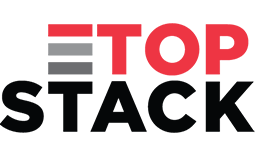4 Important Networking Tips When Looking For a Job

When networking, it’s important to know how to make your pitch, keep track of your contacts, and always be open to opportunities.
Today, professional networking is one of the most important things you can do for your career. Building professional contacts can lead to your next job or help you land a sale. Networking can also find mentors or business connections that can help you grow your skills. It’s a type of exposure that always pays you back in opportunities. But if you’re looking for a job, there is no better way to make connections. LinkedIn says 80% of professionals say networking is still the most important thing you can do to land a new job or grow your career. But they also say most people don’t know what to say when they’re networking or how to use these connections. Here are some tips to help you improve your networking efforts.
Practice Your Pitch
The first step toward knowing how to network is to understand why you’re networking. What is your goal? What is your pitch? Try to break it down concisely but share your skills and how you plan on using them. You can introduce yourself as “I’m an entrepreneur with ten years in technology.” Or, “I’ve been a finance manager for a top firm for the past five years.” But you should also come up with two or three conversations starters that can be as simple as “What is it that you do?” or “Why are you here today?” or “Tell me more about your company?” As the conversation progresses, you can let them know you’re open to new opportunities, and you’d like to call on them to network further in the future.
Keep Track and Follow Up
Keep a list of the people you meet, any referrals they give you, and where you met them. If you get a business card, always follow up by connecting on LinkedIn and then sending them an email after your visit. You may even want to schedule a coffee with them down the road to strengthen the connection.
Who and Where Will You Meet These Connections?
From business events to the kid’s soccer games, there are all kinds of ways to start networking. Neighbors, alumni organization, professional or personal groups, or other activities all give you opportunities to meet people. You just have to take advantage of these contacts.
Be Ready for New Opportunities
Before you get serious about networking, consider your LinkedIn profile along with your resume. Take time to do any updating necessary. You may want to have small cards with your name and contact information to leave with the person you just met. Always ask them for their card and if you may reach out to them to network in the future.
Networking your way to a new career will get you out and noticed by professionals. It’s important to always stay open to new opportunities as they arise. Make an effort to get to know people and then follow up with them to see who they know. You should also reach out to the team at Top Stack for a confidential assessment of your resume. We can add it to our database, so as jobs come up, we can alert you to who’s hiring and connect you with new employers. Contact us in the New Year. We can help.










